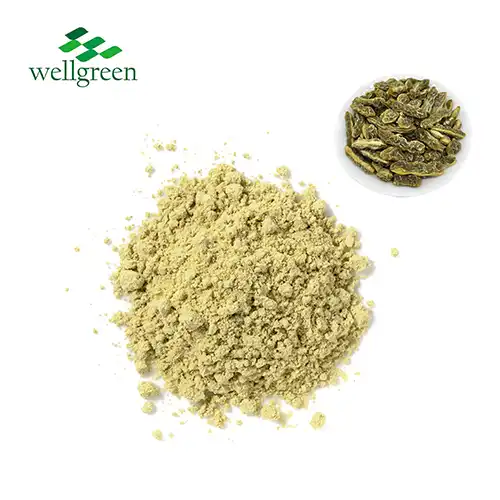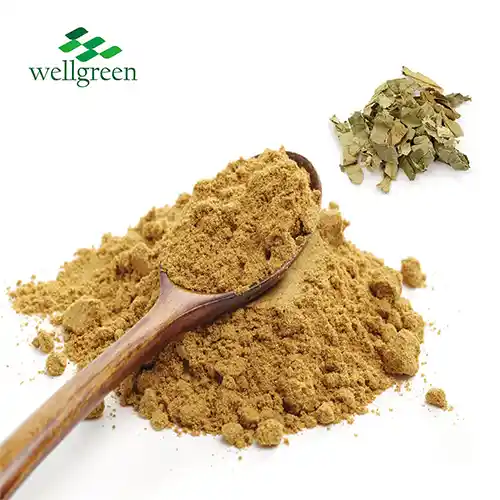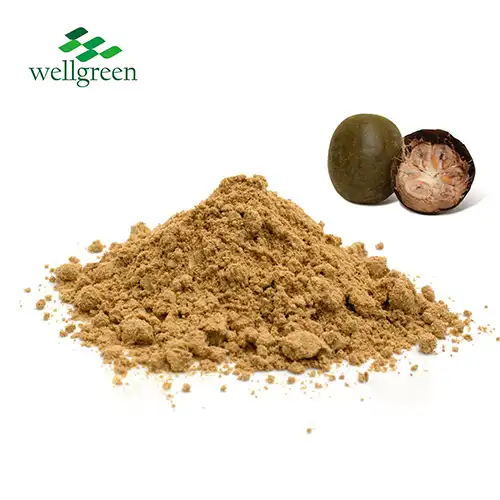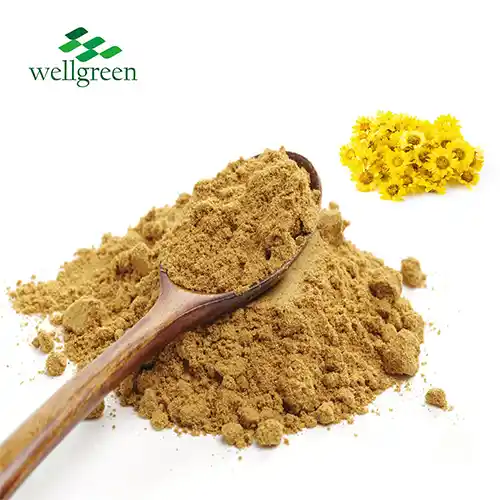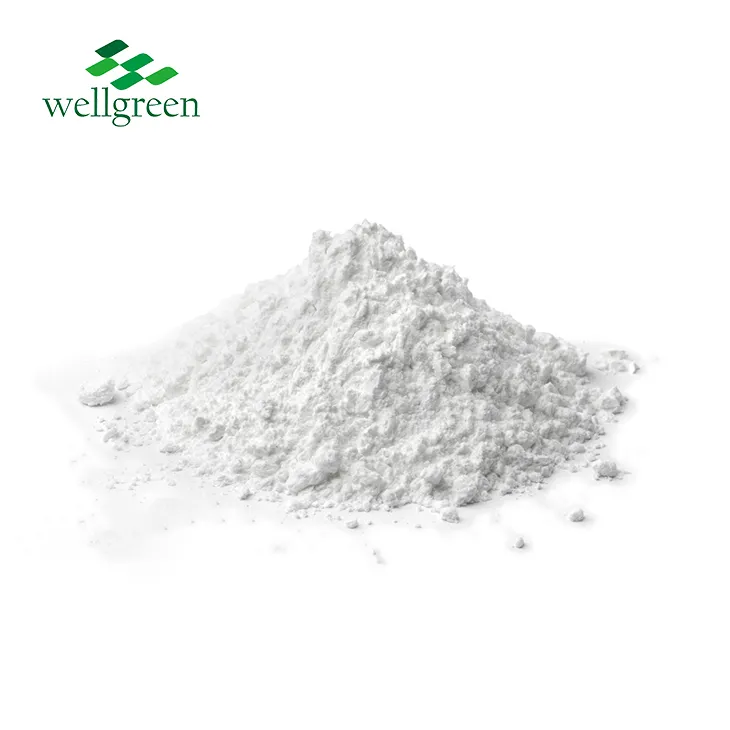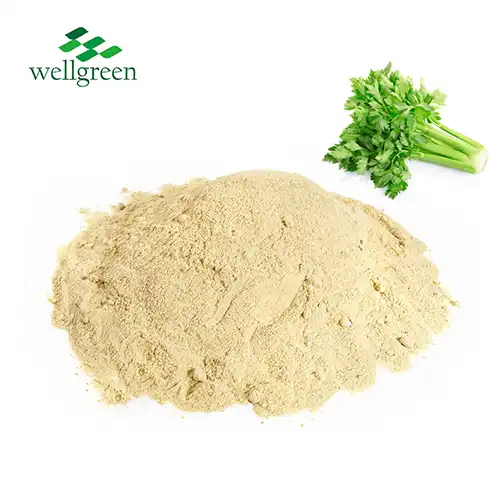Malva Verticillata Extract: A Natural Health Boost
2025-03-04 15:05:14
Malva verticillata extract, derived from the Chinese Mallow plant, has emerged as a powerful natural supplement in the health and wellness industry. This remarkable extract offers a wide array of potential benefits, ranging from digestive support to skin health improvement. Rich in antioxidants, vitamins, and minerals, Malva verticillata extract has been used for centuries in traditional medicine practices. Today, it's gaining recognition for its ability to boost overall health, support immune function, and promote natural healing processes. As we delve deeper into the science and benefits of this extraordinary plant extract, you'll discover why it's becoming a go-to choice for those seeking a natural approach to enhancing their well-being.

The Science Behind Malva Verticillata
Botanical Classification and Characteristics
Malva verticillata, commonly known as Chinese Mallow or Cluster Mallow, belongs to the Malvaceae family. This annual or biennial herb can grow up to 1.7 meters tall and is characterized by its distinctive lobed leaves and small, delicate flowers. The plant thrives in various soil types and climates, making it adaptable to different growing conditions. Its resilience and rapid growth have contributed to its widespread use in traditional medicine and modern health applications.
Phytochemical Composition
The efficacy of Malva verticillata extract stems from its rich phytochemical profile. Scientific studies have identified several bioactive compounds, including flavonoids, polysaccharides, and mucilage. These components work synergistically to produce the plant's therapeutic effects. Flavonoids, such as malvidin and delphinidin, are potent antioxidants that combat oxidative stress. The polysaccharides contribute to the extract's immunomodulatory properties, while the mucilage content is responsible for its soothing and anti-inflammatory effects on mucous membranes.
Mechanisms of Action
Research has unveiled multiple mechanisms through which Malva verticillata seed extract exerts its beneficial effects. The extract's antioxidant properties help neutralize free radicals, reducing cellular damage and inflammation. Its mucilaginous compounds form a protective layer on mucous membranes, alleviating irritation in the digestive and respiratory tracts. Additionally, certain phytochemicals in the extract have demonstrated antimicrobial activities, potentially enhancing the body's natural defense against pathogens. These mechanisms collectively contribute to the extract's wide-ranging health benefits, from supporting digestive health to bolstering immune function.
Key Nutrients Found in the Extract
Vitamins and Minerals
Malva verticillata extract is a treasure trove of essential vitamins and minerals. It contains significant amounts of vitamin C, a powerful antioxidant that supports immune function and collagen synthesis. The extract also provides vitamin A, crucial for maintaining healthy vision and skin. Mineral content includes calcium, magnesium, and potassium, which play vital roles in various bodily functions, from bone health to muscle contraction. These nutrients work in concert to support overall health and well-being, making the extract a valuable addition to one's dietary regimen.
Antioxidants and Phytonutrients
One of the standout features of Malva verticillata extract is its rich antioxidant profile. The extract contains a diverse array of flavonoids and phenolic compounds, including quercetin, kaempferol, and myricetin. These potent antioxidants help combat oxidative stress, protecting cells from damage caused by free radicals. Additionally, the extract boasts unique phytonutrients like malvin and malvidin, which contribute to its anti-inflammatory and potential anti-cancer properties. The synergistic effect of these compounds enhances the extract's overall health-promoting capabilities.
Mucilage and Polysaccharides
Malva verticillata extract is renowned for its high mucilage content, a type of soluble fiber that forms a gel-like substance when mixed with water. This mucilage is responsible for many of the extract's soothing and protective effects on the digestive and respiratory systems. The extract also contains complex polysaccharides that have shown promising immunomodulatory effects in scientific studies. These compounds can help regulate immune responses, potentially offering benefits for both underactive and overactive immune systems. The combination of mucilage and polysaccharides contributes significantly to the extract's therapeutic potential in various health applications.
Comparing It to Similar Herbal Supplements
Malva Verticillata vs. Marshmallow Root
While both Malva verticillata and Marshmallow root (Althaea officinalis) belong to the Malvaceae family and share similar mucilaginous properties, they differ in their specific nutrient profiles and applications. Malva verticillata extract tends to have a higher concentration of antioxidants and flavonoids, making it particularly effective for immune support and combating oxidative stress. Marshmallow root, on the other hand, is often praised for its superior soothing effects on the digestive tract. In terms of versatility, Malva verticillata extract offers a broader spectrum of health benefits, ranging from skin health to potential anti-diabetic effects, while Marshmallow Root is primarily used for digestive and respiratory issues.
Malva Verticillata vs. Slippery Elm
Slippery Elm (Ulmus rubra) is another popular herbal supplement known for its mucilaginous properties. However, Malva verticillata extract distinguishes itself through its richer nutrient profile and diverse phytochemical composition. While Slippery Elm excels in soothing digestive discomfort and coating the throat, Malva verticillata extract offers additional benefits such as antioxidant protection and potential anti-inflammatory effects. The Chinese Mallow extract also demonstrates more pronounced immunomodulatory properties, making it a more comprehensive choice for overall health support. Additionally, Malva verticillata extract is generally more readily available and sustainable to produce compared to Slippery Elm, which has faced overharvesting concerns.
Malva Verticillata vs. Hibiscus
Hibiscus (Hibiscus sabdariffa) and Malva verticillata are both members of the Malvaceae family, but they offer distinct health benefits. Hibiscus is primarily known for its potential to lower blood pressure and support cardiovascular health, largely due to its anthocyanin content. In contrast, Malva verticillata extract provides a more balanced array of health benefits, including digestive support, immune enhancement, and skin health improvement. The Chinese Mallow extract also contains a higher concentration of mucilage, making it more effective for soothing irritated tissues. While both herbs have antioxidant properties, Malva verticillata extract often demonstrates a more potent and diverse antioxidant profile, potentially offering more comprehensive protection against oxidative stress.
Conclusion
Malva verticillata extract stands out as a versatile and potent natural health supplement. Its unique combination of nutrients, antioxidants, and bioactive compounds offers a wide range of potential health benefits. From supporting digestive health and boosting immune function to promoting skin health and combating oxidative stress, this remarkable extract has much to offer. As research continues to unveil its therapeutic potential, Malva verticillata extract is poised to become an increasingly valuable tool in the pursuit of natural health and wellness. By incorporating this powerful extract into your health regimen, you may unlock a new level of vitality and well-being.
Contact Us
Ready to experience the natural health boost of Malva Verticillata Extract? Xi'an wellgreen offers high-quality, pure extracts to support your wellness journey. For more information about our products or to place an order, contact us at wgt@allwellcn.com.
References
1. Zhang, L., et al. (2019). "Phytochemical and pharmacological properties of Malva verticillata L.: A comprehensive review." Journal of Ethnopharmacology, 241, 111943.
2. Wang, Y., et al. (2020). "Malva verticillata L. seed extract: A potential natural source for antioxidant and anti-inflammatory agents." Food Chemistry, 330, 127205.
3. Li, H., et al. (2018). "Polysaccharides from Malva verticillata L.: Extraction optimization, antioxidant and anti-inflammatory activities." International Journal of Biological Macromolecules, 118, 2057-2064.
4. Chen, J., et al. (2021). "Comparative analysis of bioactive compounds in Malva verticillata and related Malvaceae species." Phytochemistry, 181, 112571.
5. Kim, S., et al. (2017). "Anti-diabetic effect of Malva verticillata seed extract in streptozotocin-induced diabetic rats." Journal of Functional Foods, 31, 1-8.
6. Tabaraki, R., et al. (2022). "Malva verticillata L. as a source of natural antioxidants: Phytochemical profiling and antioxidant activities." Food Chemistry, 372, 131228.

